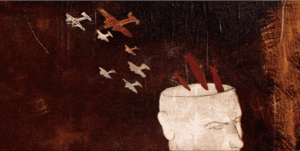The Commonwealth claims to be composed of prosperity, democracy, and peace. But to what extent are these values really expressed to and shared among its members? An incredible figurehead of an incredible country was lost, and the entire world is reeling from Her Majesty’s passing. Virtually every commentator and expert is talking about how the monarchy will survive, but the aspect that intrigues me the most is: What will the Commonwealth look like now that the Queen is not the leader? Fifty-six countries that have always been overseen by the Queen are now at the helm of an international identity crisis. Whether the monarchy goes to shambles or rises again to power, the real question is whether the Commonwealth will prevail. I believe that the Queen, and all the symbolism she possessed, was the only glue holding the rag-tag team of countries together. Until the community comes together to reassess what exactly its commonalities are, the Commonwealth has no prosperous future and becomes yet another association of diplomacy-laced blowhards.
The Commonwealth has already been through its fair share of growing pains since its inception in 1931. Originally starting as an association of countries bound by the ex-British Empire, the Commonwealth grew from seven member countries to its current size of fifty-six member countries. The basis for its foundation was to band together countries that were previously British colonies, but were now free. With India joining in 1949, dozens of others have joined since, finding a sense of belonging “under” Britain attempting to right their countless wrongs. Mozambique was a curious case in the Commonwealth that signaled the start of the end. Although membership criteria to join has always been under constant re-examination, Mozambique was the first country to join, having no ties to the British Empire. Simply sharing borders with Commonwealth countries was an exceptional circumstance, and therefore enough to earn membership.
The guidelines became increasingly loose when Rwanda was granted membership in 2009 due to geopolitical reasons. Distancing from France, it made the most sense to join, even though similarly to Mozambique, they had no historic ties to Britain. Rwanda is seen as the odd one out, as the Commonwealth Human Rights Initiative found that the country does not meet the criteria of fair, equal governance, and human rights. The decision to accept Rwanda was seen as foolish by many, but after the Rwandan Genocide, there was hope that the Commonwealth network could provide stability and make the country’s voice louder on an international stage. Based on economic & political reasons, the thought of having a head of state as strong as the Queen of England was seen as a beacon of hope for a country in recovery.
These “misfit” countries are common within the Commonwealth, having no real historical connection to Britain. This is not inherently bad, but when coupled with the fact that often they are not following their own goals, everything becomes null. The source of consternation comes from the fact that, on paper, the association’s aim is to enhance democracy and economic development. But when the latest conference was hosted in Rwanda this year, no mention of human rights nor the failed democracy they were living in was even mentioned. If it is to be seen as smaller countries gaining a spot at the table, then it should be sold like that. But the mixed messages can only lead to a messier future.
Once they lost their commonalities, the rag-tag team only had one head of state, the Queen, in common in the end. Once that variable (unfortunately) is removed, the Commonwealth needs to take a step back and reassess what its goals are. Will the new head of state, Charles, be seen as the babysitter of democracy? Will this now be the time for powerhouses, such as India, to play a lead role? Will this fifty-six country band be a force for good on a dying planet? Diplomacy is filled with meaningless conferences of big words and broken promises, and the Commonwealth will fall into this trap if the “what are we” talk doesn’t happen soon.
Featured image by: Unsplash






